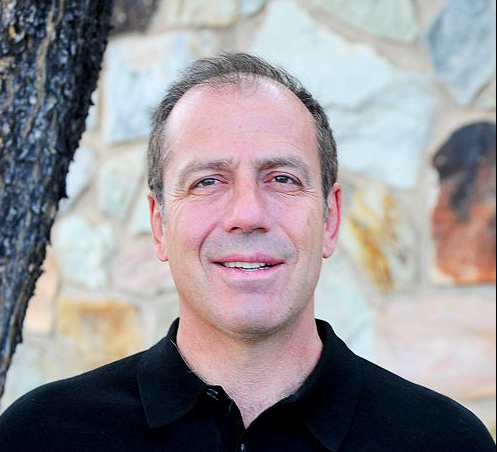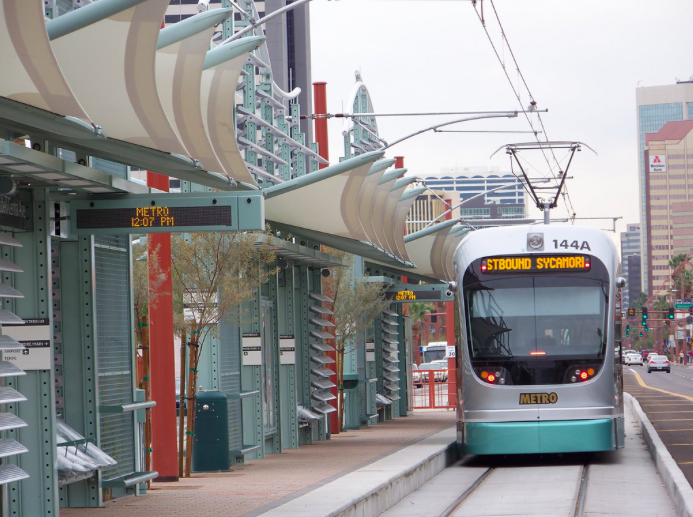The Phoenix City Council voted Wednesday night to hijack $135 million of funding for a proposed light rail extension and spend it on road projects, delivering a blow to plans to transit — and a more sustainable, equitable city.
The decision is the opening battle in a larger war being waged locally against Phoenix voters' expressed desires to build a $31.5-billion light rail system.

Behind the "railback" effort is a group calling itself "Building a Better Phoenix," which presents itself as a group of local business owners but has received financial support from the Arizona Free Enterprise Institute, which is a “Koch-connected dark-money group," according to the Arizona Republic.
Transferring $135 million from west Phoenix Light Rail will likely kill the project, the paper reports, especially with the Trump Administration already seeming bent on sabotaging projects.
But the bigger threat is looming. The group has collected just 20,000 signatures to place a measure on the ballot in August that would challenge Phoenix voters' overwhelming 2015 vote in favor of the light rail system. The measure would instead shift the money to road spending.
David King, an urban planning professor at Arizona State University, says he doesn't think voters overturning the measure is assured right now, but he thinks its a real danger.
"There has just been a total leadership vacuum at the city since [former Mayor Greg Stanton] resigned to run for Congress," he told Streetsblog.
Into the void has stepped City Council Member Sal DiCiccio, who has ties to Americans for Prosperity, a well-funded political operation backed by the plutocrat industrial Charles and David Koch that has played a key role in opposing local transit measure around the country. DiCiccio led an unsuccessful charge last year to cancel the South Central Light Rail project serving lower-income neighborhoods in Phoenix, while Phoenix was being led by interim Mayor Thelda Williams.
"It just has not been a particularly good few years" for transit and smart growth efforts in Phoenix, said King.
Valley Metro's image suffered when former CEO Steve Banta resigned in scandal in 2015. In addition, the city's volunteer appointed Complete Streets Advisory Board resigned en masse last summer, fed up with a lack of progress from city staff.
But King says it would be a shame for Phoenix to abandon its light rail plans now. The initial light rail line for Phoenix has seen respectable ridership and a fair amount of development. And the transit measure — Prop 104 — offered more hope for a better organized, more sustainable city structure.
"We have an opportunity to grow our way out of a lot of problems," King said. "We’re growing at 2-4 percent per year. We can become denser we can create parts of the city where you don’t need a car to get around."
Some transit opponents in Phoenix have seized on the idea that self-driving cars will make transit obsolete. That's a more real prospect in people's minds in Arizona, which is a testing ground for autonomous vehicles, King said.
It remains to be seen whether new mayor, Kate Gallego, who was sworn in today, will fill the void left behind by Stanton, who was a leading proponent of the transit spending measure.
King says he still thinks there's a lot of support for transit spending.
"A lot of roads need improving, but people genuinely like seeing the rail investment," King said. "It’s something that’s broadly popular."






